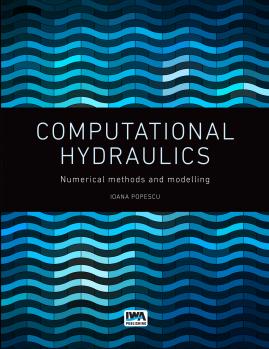 |
Computational Hydraulics 
Computational Hydraulics

Computational Hydraulics introduces the concept of modeling and the contribution of numerical methods and numerical analysis to modeling. It provides a concise and comprehensive description of the basic hydraulic principles, and the problems addressed by these principles in the aquatic environment. Flow equations, numerical and analytical solutions are included.
The necessary steps for building and applying numerical methods in hydraulics comprise the core of the book and this is followed by a report of different example applications of computational hydraulics: river training effects on flood propagation, water quality modelling of lakes and coastal applications.
The theory and exercises included in the book promote learning of concepts within academic environments. Sample codes are made available online for purchasers of the book.
Computational Hydraulics is intended for under-graduate and graduate students, researchers, members of governmental and non-governmental agencies and professionals involved in management of the water related problems.
Author: Ioana Popescu, Hydroinformatics group, UNESCO-IHE Institute for Water Education, Delft , The Netherlands.
Table of Contents
Modelling theory and its application, Numerical methods introduction, Modelling of water related problems, Discretisation of the fluid flow domain, Time discretisation, Finite difference methods, Finite volume methods, Properties of numerical methods, River training effects on flood propagation, Water quality modelling of lakes, Coastal related applications
Also available as part of your Water Inteligence Online subscription
Publication Date: 14/08/2014ISBN13: 9781780400440eISBN: 9781780400457Pages: 160 |
Print:
|